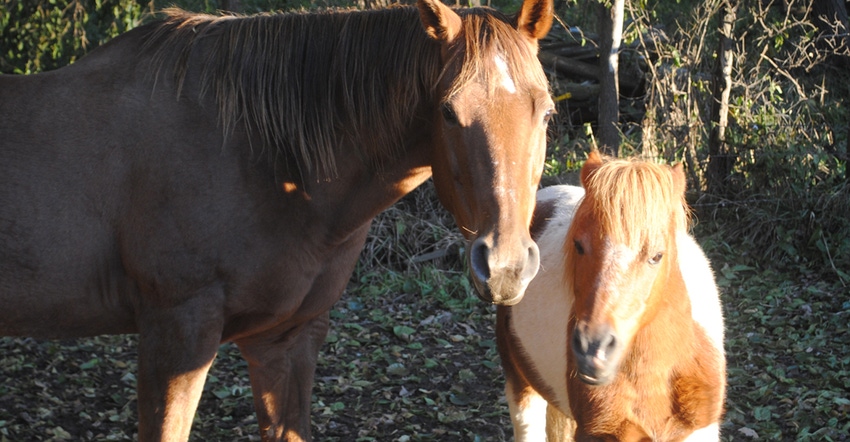
Horses may not offer the real horsepower in the field they once provided on farms nearly a century ago. The number of horses and mules used on U.S. farms peaked around 1920 at 25 million animals.
With the arrival of newfangled tractors on the scene after World War I, the importance of horses slowly diminished. Horse numbers may have declined considerably, but they still carry a tremendous amount of working clout for many livestock operations. That’s why it is crucial to take good care of your working horses going into winter.
Feed. “I would say the main issues are adjusting what you are feeding as the weather changes,” says Nebraska Extension equine specialist Kathleen Anderson. “Many of these horses are on pasture, but during the winter, pastures will not maintain a horse.”
“The first thing is to provide good quality hay,” Anderson says. “Horses will generate more body heat from the digestion of fiber and forages than from grain. So first, make sure they have plenty of hay.” Horses need a minimum of one percent of their body weight, but Anderson recommends 1.5% of the body weight of the horse in hay. That means that a 1,000-pound horse needs between 10 and 15 pounds of hay in a day.
“Many will also need some grain, especially as it gets colder,” she says. “Most adult horses should have a grain that is around 12% to 14% crude protein.” If you feed less than 0.5% of their body weight in grain, then they can be fed once a day. “If they need more than that, as most horses will, it will need to be split into two feedings, which are preferred to be around 12 hours apart.”
Water. “Fresh, clean water is also important,” she says. “I recently started putting two buckets of water per stall, unless there are automatic waterers. This should keep horses from running out of water.” Horse colic is common in the winter because horses aren’t consuming enough water. “If the barn is not heated, there are heated buckets that can be purchased to keep water open and available,” Anderson says.
Hoof care. Hoof care, including trimming and resets, should continue through winter every eight weeks, depending on the horse. “As the ground freezes, some tender-footed horses can have soreness issues and even develop laminitis,” Anderson says. “Careful maintenance of the feet is a year-around project.”
Dental exam. She also suggests an annual dental exam to see if floating needs to be done. “Most adult horses should have their teeth checked at least once a year,” she says. “If the horse starts to drop feed, chew sideways or fight the bit, checking the teeth may help with figuring out the problem.”
The main thing is to keep a close eye on the horses during the colder seasons. “Horses need clean, dust-free, mold-free hay, so pay close attention to what you are feeding,” Anderson adds.
You can learn more about working horse management by contacting Anderson at [email protected].
About the Author(s)
You May Also Like






